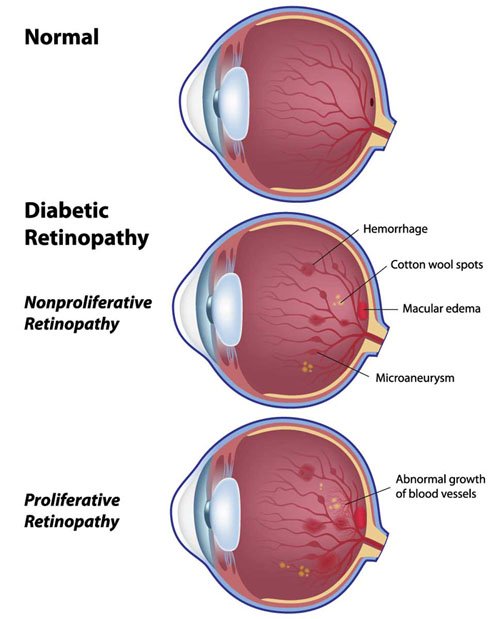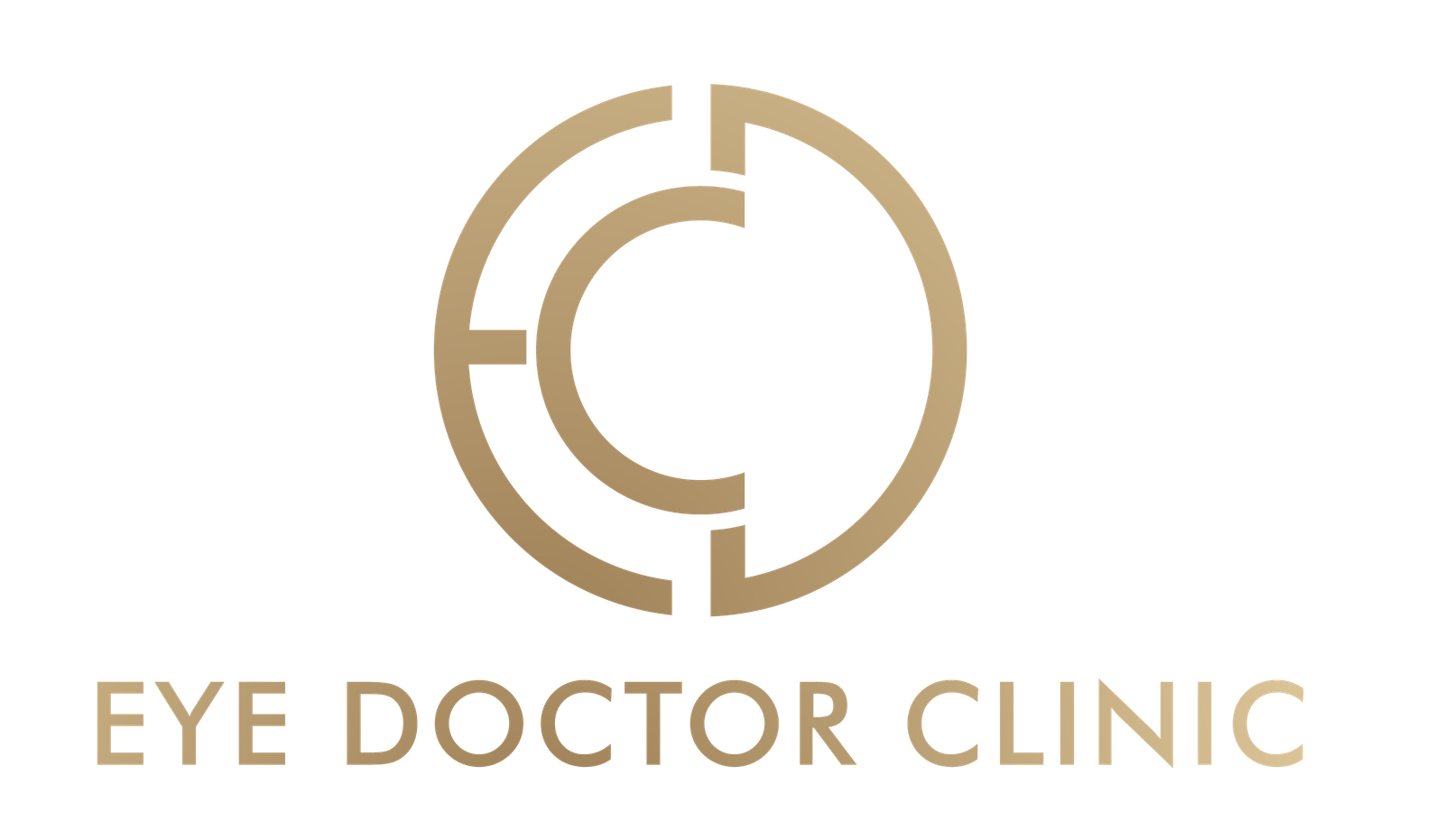
What is Diabetes?
Diabetes is a condition of elevated blood sugar levels (hyperglycaemia) which can affect various organs, including the eyes. Blood sugar is controlled by the hormone insulin, which is produced in the pancreas.
There are two main types of diabetes:
- Type 1
Results from a failure to produce adequate levels of insulin, often presenting in teenage years.
- Type 2
Most common type due to development of a resistance to insulin, usually affects people over the age of 45 years.

What is diabetic retinopathy?
Diabetic retinopathy is the term used when the raised blood sugar damages the retina at the back of the eye. It is more common in type 1 compared to type2 diabetes, but overall affects approximately 80% of people with diabetes once they have had the condition for more than 10 years. Diabetic retinopathy is the commonest cause of severe sight impairment in the UK’s working population.
There are different stages of diabetic retinopathy which can be broadly summarised as follows:
- Background retinopathy: This is the earliest stage whereby high sugar levels weaken and damage the retinal blood vessels. Tiny haemorrhages may be visible at the back of the eyes. No specific treatment is required but patients are encouraged to be strict with their blood sugar monitoring and control.
- Non-proliferative retinopathy: More advanced signs in the retinal circulation suggestive of a restricted blood flow to the eye. Occasionally there may be visual blurring and lifestyle changes can be important to improve the retinal signs e.g.: balanced diet, regular exercise, blood pressure and blood sugar control.
- Proliferative retinopathy: This arises when the damaged retina releases growth chemicals which encourage new retinal blood vessels to grow (retinal neovascularisation). They tend to bleed easily and cause scar tissue, both of which can damage vision.
Contact our clinic today to learn more about how we can help you achieve optimal eye health.
Diabetic retinopathy treatment
Historically laser photocoagulation is the main treatment for this condition. For reasons not fully understood laser can stop new retinal vessels from growing. A more recent approach is to inject a medicine into the eye to block the chemical messengers which are responsible for the new blood vessel growth. More rarely surgery may be required for more advanced disease.
Contact Us
We’re here to answer your questions and help you achieve optimal eye health.
Get In Touch
- Phone : 01903495532
- Location : 1 Brooks Road, Lewes, BN7 2DN
- Email : contact@eyedoctorclinic.co.uk
Opening Hours
- Monday - Saturday 10 am -6 pm
